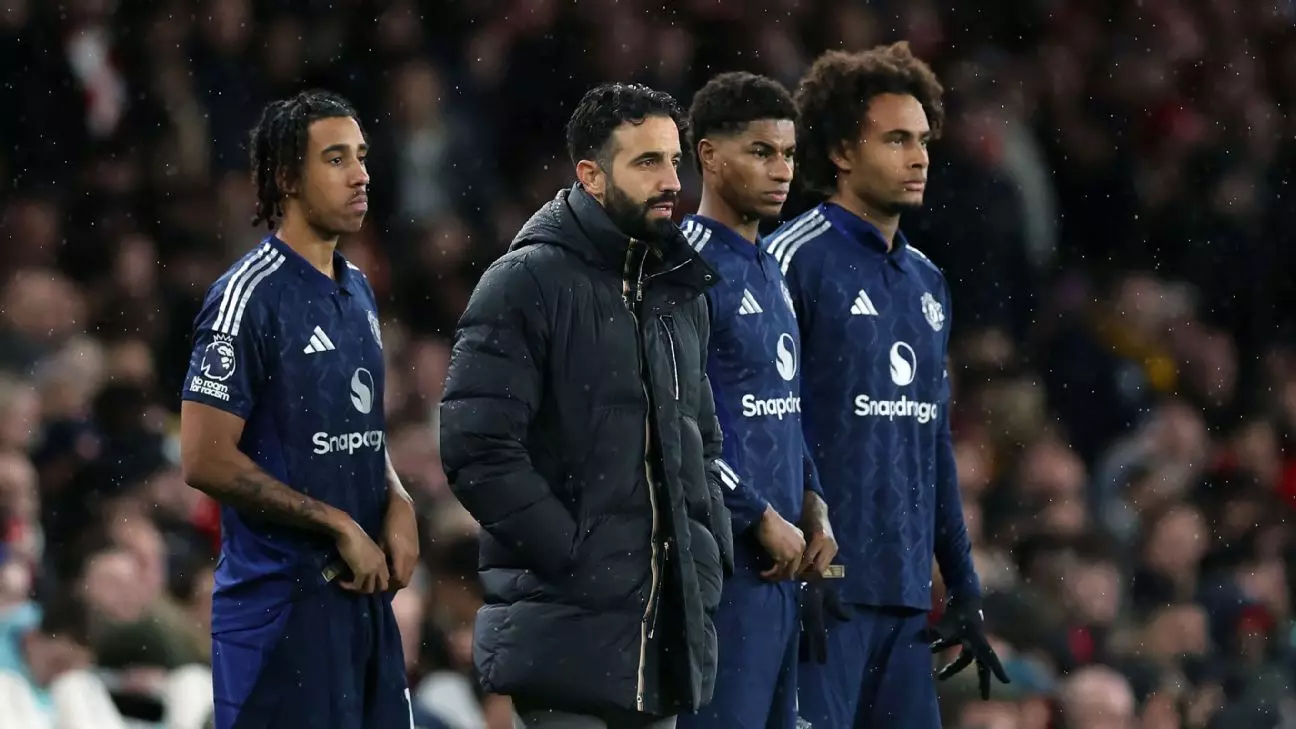In his inaugural season at Manchester United, manager Ruben Amorim has been thrust into the complexities of managing a squad riddled with injuries, which has significantly impacted both team dynamics and performance on the pitch. Following a disappointing 2-0 defeat at Arsenal, Amorim acknowledged the pressure he faces due to the number of players returning from injury with restricted capabilities. With goals from Jurriën Timber and William Saliba sealing United’s fate, Amorim’s strategies were put to the test, highlighting the delicate balance between squad rotation and maintaining competitive form.
Amorim’s commentary on player fitness underscores the hurdles facing modern football managers, particularly those in high-stakes environments like the Premier League. With pivotal players such as Harry Maguire, Tyrell Malacia, and Mason Mount returning from injuries, the coach is in a precarious position where he must weigh the risk of pushing players too hard against the potential gains. His declaration of a “time limit” for players experiencing post-injury fatigue expresses the nuanced and often fraught decision-making process inherent in guiding a team through challenging circumstances.
Despite the defeat, Amorim remains committed to identifying positives within the team’s performance, asserting that evaluation extends beyond mere results. This mindset is crucial in fostering resilience within the squad. Amorim’s line of reasoning — acknowledging the atmosphere within the stadium and how it affects player confidence — reveals an astute understanding of the psychological dimensions of football. Players often perform uniquely under pressure, and Amorim’s ability to decipher this and adapt is essential for United’s evolution this season.
Moreover, his focus on gradual progress rather than instantaneous success is emblematic of a strategy designed for sustainable growth. The need for consistency amidst fluctuating player fitness levels informs not only his in-game tactics but also his overall vision for the team’s future. This philosophy becomes even more relevant as they contend not only with immediate opponents but with the long season ahead, one that demands depth and adaptability.
Another pressing concern for Amorim is the status of Luke Shaw, who has recently suffered another setback in his recovery from a protracted calf injury. The decision to afford Shaw ample time to regain his fitness conveys a broader message: prioritizing player welfare aligns with cultivating a winning culture. Amorim’s commitment to ensuring Shaw returns fully fit exemplifies a nurturing approach that is vital in high-competition scenarios where the mental and physical health of athletes is paramount.
Through the lens of Shaw’s situation, one can observe the broader context of athlete management. Football clubs today are tasked with extending careers rather than merely maximizing immediate output, and Amorim’s focus on creating an environment conducive to long-term player development is commendable.
Looking Ahead: Building a Cohesive Unit
As Amorim attempts to navigate these challenges, it becomes clear that forging a cohesive unit capable of enduring the rigors of top-flight football is no small feat. His remarks about game assessments, regardless of outcomes, reveal his intention to develop a strong tactical foundation — allowing each game to serve as a building block toward greater synergy among players. The balance between optimism and realism in his approach will ultimately dictate how well United can cope with adversity.
Ultimately, Amorim’s experiences resonate with many in football management; they convincingly illustrate the realities of coaching amid uncertainty. Injuries, testing insights, and the overarching goal of team progression must be skillfully balanced by a leader capable of inspiring both trust and aggression in equal measure. The road ahead may be turbulent, but with a calculated approach, there lies the potential for United to emerge not just as a team but as a championship contender.


Napsat komentář